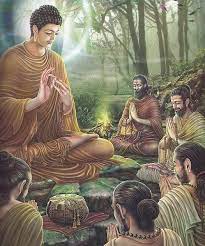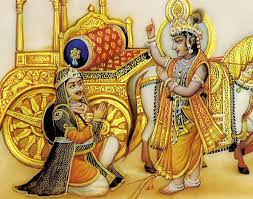
The life and teachings of Lord Buddha
Lord Buddha, also known as Siddhartha Gautama, was a spiritual teacher and founder of Buddhism. He was born in Lumbini, Nepal, around 563 BCE. Lord Buddha's teachings have had a profound impact on the world, and his philosophy continues to inspire millions of people today. In this blog, we will explore the life and teachings of Lord Buddha in detail.

Early Life:
Lord Buddha was born to King Suddhodana and Queen Maya in Lumbini, Nepal. According to legend, Queen Maya had a dream in which a white elephant with six tusks entered her womb. The dream was interpreted as a sign that she would give birth to a great leader. When Lord Buddha was born, he was given the name Siddhartha, which means "one who achieves his aim."

As a child, Lord Buddha was given a privileged upbringing and was sheltered from the hardships of the outside world. He was married at the age of 16 and had a son. Despite his comfortable life, Lord Buddha was troubled by the suffering he saw around him and began to question the meaning of life.
The Four Sights:
One day, Lord Buddha left the palace and saw four sights that would change his life forever. He saw an old man, a sick man, a corpse, and a wandering ascetic. These sights made him realize the impermanence of life and the inevitability of suffering. He left his comfortable life behind and became a wandering ascetic, seeking a way to end suffering.
Enlightenment:
Lord Buddha spent several years studying with various teachers and practicing extreme forms of asceticism. However, he found that these practices did not lead to the end of suffering. He then decided to meditate under a Bodhi tree and vowed not to get up until he had found the truth.

After 49 days of meditation, Lord Buddha attained enlightenment and became the Buddha, which means "the awakened one." He realized the Four Noble Truths and the Noble Eightfold Path, which form the basis of Buddhist philosophy.
Teachings:

Lord Buddha's teachings are centered around the Four Noble Truths, which are:
The truth of suffering: Life is characterized by suffering.
The truth of the cause of suffering: The cause of suffering is desire and attachment.
The truth of the cessation of suffering: Suffering can be ended by eliminating desire and attachment.
The truth of the path to the cessation of suffering: The path to the end of suffering is the Noble Eightfold Path.
The Noble Eightfold Path consists of Right Understanding, Right Intention, Right Speech, Right Action, Right Livelihood, Right Effort, Right Mindfulness, and Right Concentration. These eight factors are interdependent and lead to the end of suffering.
Lord Buddha's teachings emphasize the importance of mindfulness and compassion. He taught that all beings are equal and that the path to enlightenment is open to anyone, regardless of their social status or background. Lord Buddha also taught that suffering is not inevitable and that it is possible to overcome it through meditation and the cultivation of wisdom and compassion.
Legacy:
Lord Buddha's teachings had a profound impact on the world, and his philosophy continues to inspire millions of people today. Buddhism is one of the world's major religions, and it has spread to many parts of the world, including Southeast Asia, China, Japan, and Tibet.
Lord Buddha's teachings have also had a significant impact on art and culture. Buddhist art is characterized by its emphasis on compassion and enlightenment, and it has inspired some of the world's greatest works of art, such as the sculptures at Borobudur in Indonesia and the paintings at Dunhuang in China.

Lord Buddha's life and teachings continue to inspire people around the world, and his legacy has had a profound impact on the world. His teachings emphasize the importance of mindfulness, compassion, and the cultivation of wisdom, and they offer a path to the end of suffering.
Buddhism has spread to many parts of the world and has become one of the world's major religions. The teachings of Lord Buddha have also had a significant impact on art and culture, inspiring some of the world's greatest works of art.
In conclusion, Lord Buddha's life and teachings have left a lasting impression on the world. His philosophy continues to provide guidance and inspiration to millions of people, offering a path to enlightenment and the end of suffering.
Author
Darshita Nautiyal
(The images used in this podcast are not owned by Anime Devta, they are just to help the readers)

